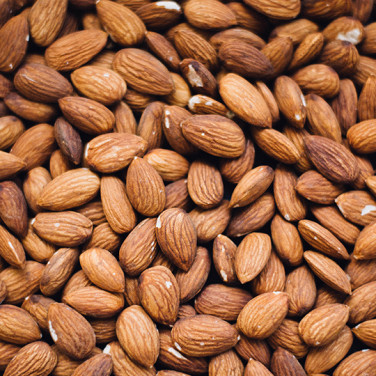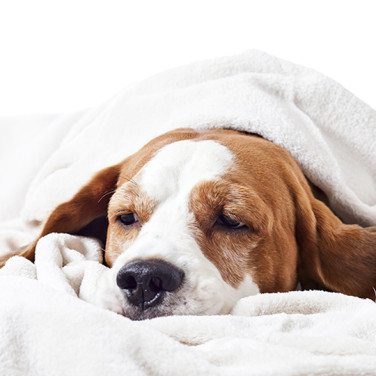SYMPTOMS
Destructive Chewing Problems in Dogs - Causes and Home Solutions
페이지 정보
본문


What is destructive chewing in dogs?
As puppies explore the world, they often chew on objects to relieve pain from incoming teeth or combat boredom. In older dogs, chewing problems can be a sign of pain, anxiety, or boredom. While this is a natural behavior to help keep their jaws strong and teeth clean, destructive chewing can become problematic for their guardians if it becomes repetitive and directed toward household objects or their own bodies. Chewing on their feet or legs may be a sign of anxiety or itchiness that needs to be addressed. Destructive chewing is one of the most common behavior problems in dogs and puppies, and in most cases, can be easily redirected. It's important to identify the cause of this behavior and either redirect it or seek treatment to prevent it from worsening.
Causes for destructive chewing problems in dogs
It is normal for dogs to chew or bite things, but when it becomes destructive or repetitive. It is beneficial to understand the different causes of this behavior and address it accordingly.
Common causes of repetitive chewing include:
-
Boredom
When alone for long periods, especially young puppies, they may relieve their boredom through chewing.
-
Anxiety
Biting things or their legs is prevalent in dogs that are anxious in a new environment or with separation anxiety.
-
Frustration
Some puppies may lash out in destructive chewing behavior when they do not get what they want, such as a snack.
-
Hunger
Destructive chewing problems can appear if they are on a certain diet for weight management and may chew on objects related to food or smell like food.
-
Teething
Young puppies may begin biting and chewing on objects to relieve the discomfort of incoming teeth.
-
Poor training
Puppies that have been weaned too long may continue licking and chewing on fabrics. Lack of proper training in general can lead to destructive chewing problems in dogs.
-
Skin disease
Dogs with skin disease can cause them to feel severe itching and pain, which may result in repetitively licking and biting their own limbs or tail.
-
Neurological disease
Tumors or inflammation of the brain can cause abnormal behavior in dogs, such as repetitive chewing.
Symptoms that may accompany destructive chewing problems in dogs
Dogs may exhibit repetitive chewing behavior as a way to express various emotions, rather than due to a pathological condition. This behavior can be directed toward a variety of objects, including shoes, clothes, paper, and toilet pads. However, if your dog chews and bites their own body due to itching from a skin disease, it may be accompanied by symptoms such as redness and hair loss. Repetitive chewing behaviors caused by brain-related disorders may also be present, which may present symptoms such as the inability to walk or run, seizures, and abnormal behaviors like pacing and zoning out.
Risks of destructive chewing problems in dogs and when to see a vet
The destructive chewing behavior problems in dogs increase the likelihood of ingesting whatever they are chewing. While ingesting foreign objects can resolve itself by inducing vomit or coming out through defecation. This behavior can also result in ingesting linear foreign objects like fabric or string, which can result in intestinal obstruction. A visit to the veterinarian is necessary as this is considered an emergency.
How to stop destructive chewing problems in dogs at home

Correcting destructive chewing problems in dogs can often be accomplished through various methods of preventive actions, training, and redirection. Consider any of the following methods to manage chewing or biting problems at home, and if symptoms persist consider a behavior specialist for proper training.
-
Exercise and play
One approach is to relieve stress and boredom in your dog by increasing their walking time and playing games such as nose work, rope tugging, or providing them with various chewing toys at home. Keep an eye on the condition of their toys to ensure to swap them out for a new ones when necessary. Some toys may eventually break apart and ingesting parts of the toys can lead to a medical issue.
-
Dividing meals
If a dog begins to exhibit destructive chewing due to a weight-managing diet or hunger. It may help to divide their meals into several smaller meals throughout the day. This can help alleviate hunger throughout the day and reduce their likelihood to search for food through destructive behavior.
-
Redirect their attention
You can use a command such as "leave it" or simply "lno" and redirect their attention to a chew toy to train them on what is appropriate to chew on and what is not. This method may take some time, but keeping your pet engaged and praising them can help the process along.
-
Dog proofing
Similar to when you puppy-proof your home, it may be necessary to dog-proof your home once again if you notice destructive chewing behavior appearing. This means putting away any chewable items on the ground floor into containers, a wardrobe, or on a shelf. Additionally, you can use a fence to prevent them from destroying any furniture or other objects when you are not home for long periods.
-
Teething puppies
Provide a wet washcloth that has been frozen for puppies that are experiencing their baby teething falling out or their incoming adult teeth. The cold can help relieve the pain of their incoming teeth.
-
Aversion method
Using a bitter spray that is safe for dogs such as diluting lemon juice or apple cider vinegar with water. Use this spray on objects that your dog tends to chew on the most.
It is important to note that when teaching your dog what is appropriate to chew on and what is not, remaining patient is crucial. Under no circumstances should you punish your dog for this behavior, as doing so may only make matters worse and potentially lead to further abnormal behaviors.
Diagnosing destructive chewing problems in dogs
Repetitive biting and chewing of objects is often a behavioral problem in dogs that may simply require proper training. However, cases of repetitive chewing on their own limbs or tail can indicate an underlying issue that can be identified through the following tests.
-
Intradermal skin test
This skin test can help check for any skin allergies a dog may have by injecting several allergens into the top layer of their skin.
-
Food trial (elimination diet trial)
If an allergy due to a certain food is suspected, an elimination diet trial will be conducted. This process will require a low-allergic diet and monitoring for signs of reduction of clinical signs. This process can take at least 8 weeks or more.
-
Skin cytology
If there are any lesions on the skin, a veterinarian can check for infection by taking a sample from the surface of the lesion and observing it under a microscope.
-
Trichogram
Hair samples from the affected areas can be examined under a microscope as a diagnostic tool.
-
MRI
An MRI scan is used to diagnose any problems in the brain or spinal cord if no conclusive results come out of the other tests.
How to treat destructive chewing problems in dogs
If the cause of your dog's chewing problems is due to anxiety, medication can be prescribed to help reduce the severity of their anxiety.
-
Medications that help reduce itchiness
Repetitive chewing and biting due to itchiness can be managed with immunotherapeutic medication such as Cytopoint and Apoquel.
-
Antibiotics
If a skin infection occurs due to excessive chewing, topical antibiotics may be prescribed to treat the affected areas.
-
Immunosuppressants
Any abnormalities found in the brain can cause behavioral problems in dogs. In these cases, immunosuppressants may be prescribed to address the problem. If there are any tumors present, chemotherapy may also be suggested.
How to prevent destructive chewing problems in dogs

It takes effort from you to keep your dog mentally and physically stimulated to avoid boredom and anxiety. Daily walks and interactive toys can be effective ways to keep your dog engaged and happy. If the behavior is driven by hunger, it can help to divide their meals into smaller more frequent meals. Proper training and positive reinforcement can help immensely in the long run but it is important to avoid any punishment or shouting. This can make their anxiety worse and other behavioral problems may begin to appear. Purchasing a variety of chew toys that vary in texture, size, and taste that you can rotate daily can also help to prevent boredom. Following these tips and understanding when your dog’s destructive chewing is a problem can help ensure your dog a healthy and happy life!
Find out more about your dog’s symptoms and diseases on the Buddydoc app!

The Buddydoc library is filled with everything you’d want to know about each symptom and disease your pet may experience. If you would like to find out more about the causes, signs, treatments, preventions, and more for your dog’s disease. Try out the Buddydoc app and search for your pet’s symptoms or diseases in the Buddydoc library.













